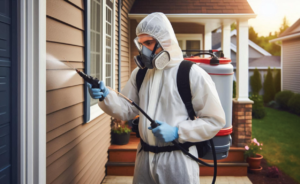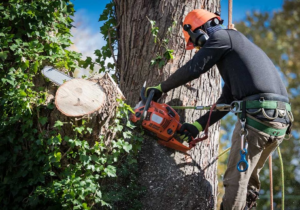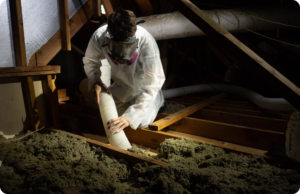Rodents and other pests cause damage to food, crops, property, and human health. Pest control methods can effectively reduce their numbers to an acceptable level.
Step 1 is to learn more about the pest and what options are available to control it. Prevention is the best strategy, but suppression and/or eradication may be needed if prevention fails. Contact a Pest Control North Las Vegas now!

Pest identification is the first step in any pest control program. It allows you to determine basic information about the pest, such as its life cycle and the time of year it is most susceptible to being controlled. It also helps you choose a proper management strategy. Without accurate pest identification, it is impossible to develop an integrated pest management plan.
Many insects have similar physical characteristics, which makes identification difficult unless you are familiar with the insect population present in your area. For example, immature beetles and caterpillars look very similar. Moreover, some pests change appearance as they mature or as they move to different stages of their life cycle. As a result, it is important to keep up with the pest populations in your area by regularly conducting “field scouting,” or searching for and identifying pests as they appear.
Accurate pest identification can also help you evaluate the need for pest control and decide whether it is necessary to use pesticides in order to control the pest population. For instance, a pest may be causing significant damage to your crops and would warrant an application of a suitable pesticide in order to minimize damage or prevent further damage.
In addition, accurate pest identification can contribute to the safe use of pesticides by helping you choose the correct product for the situation and apply it correctly. For example, some pesticides are not suitable for use on certain plants or are only effective at a particular stage of the plant’s life cycle.
If you are not comfortable with your own ability to identify pests, seek advice from a professional. Many pest control companies provide free estimates, at which they discuss a treatment program, cost, and warranties. Shop around to find a company that is recommended by friends and neighbors.
If you are unable to find an experienced pest control technician in your area, you can find information and identification guides on the Web or from printed sources such as university extension publications. For example, the University of California Agriculture and Natural Resources publication Pests of Homeowner Landscape Trees and Shrubs provides helpful identifiers for major pests on common garden plants.
Pest Prevention
Pests pose serious health and safety risks to humans, causing damage and threatening quality of life. Infestations by rodents, for example, can spread a variety of diseases, including salmonellosis and hantavirus, while insects like mosquitoes and cockroaches can trigger asthma attacks and carry bacteria and viruses that can cause foodborne illness.
Effective structural prevention is key to preventing pest infestations, and can be achieved through routine maintenance, specific enhancements that block entry points, and sanitation improvements. This is especially important for communities, as educating residents on preventative methods can reduce the need for toxic pesticides.
Many pests are attracted to food waste, garbage and rotting wood, and can enter homes and businesses through small cracks or openings. Caulking and weather stripping can help seal these entrance points, while sweeping and vacuuming regularly and wiping down surfaces helps eliminate the sticky residues that attract pests. Storing food in airtight containers and taking out trash frequently and securely can also help deter pests, as can storing outdoor items outside or ensuring that they are thoroughly cleaned before bringing them inside.
For the most part, pests thrive in moist environments. Fixing leaky pipes and eliminating standing water can make the environment less hospitable to pests, as can using dehumidifiers in damp areas such as basements.
It is also critical to encourage early reporting of pests so they can be tackled before the problem escalates. This allows for proper identification and effective treatment measures to be taken, while minimizing risks to humans, pets and the environment.
While pesticides can be effective at controlling pest populations, they must be used carefully and only when necessary. This requires an understanding of the pests being targeted, their behavior and preferred habitat, and an awareness of the risks associated with the use of any product. Only then can a professional determine the right course of action to take. Some pesticides are relatively low-risk if used properly, such as baits that require the target pest to eat them, traps that kill them when activated, and sprays that only cover a targeted area.
Pest Control Methods
A pest control strategy should include preventive and suppression methods. A goal should be to keep the pest population below a level that causes unacceptable harm. This could be done by controlling the pests directly, or by making it harder for them to survive and reproduce.
Before trying any controls, it’s important to learn as much as possible about the pest in question. This helps to determine whether action is actually needed, and if so, the best way to go about it. For example, a pest’s biology, habitat and behavior help to indicate whether direct physical control is appropriate, or whether biological or chemical controls would be more effective.
Identifying and inspecting the pest in question also helps to understand what conditions the pest needs to thrive. This helps to establish desired outcomes to guide control efforts and measure management success. For example, if a pest is attracted to a specific crop or environment, careful selection of planting sites can help avoid the problem.
Physical traps, screens and barriers can prevent pests from entering or leaving an area. This includes repairing cracks and holes in walls, foundation and around utility lines; sealing crawl spaces; and putting door sweeps and weather stripping on outside doors. It also means keeping food, garbage and compost containers tightly sealed; thinning crowded plants to improve air circulation; and removing weeds in fields and woodpiles that provide shelter to rodents and other pests.
Chemical solutions can be applied as repellents, which make it uncomfortable or unpleasant for a pest to stay in an area; or as insecticides, which kill the pest by disrupting its metabolism. These are usually easier to find and use than biological controls, and can offer instant results.
However, there are many risks associated with chemical pesticides. Always read and follow the product labels, and never exceed recommended amounts. Also, keep children and pets away from sprays or baits. Using a pesticide without proper protective equipment or in an unprotected area can result in illness or even death. It’s also important to properly store and dispose of any used pesticides.
Pesticides
The goal of pest control is to destroy, or at least reduce the number of, harmful organisms that are damaging plants and crops. The use of pesticides, which are chemicals that kill or control pests, is one way to achieve this. However, many pesticides also can be harmful to humans and animals. For this reason, people should try non-chemical methods of controlling pests before using pesticides. Pesticides should be used only when necessary and when they are correctly applied to minimize risk.
Identifying and assessing pests is the first step to selecting the best and least toxic method for control. Pesticides are available for control of insects, weeds, mildews and rodents. They come in a variety of forms and formulations. Before applying any pesticide, read the label to ensure the product is appropriate for the intended use. Avoid spraying sensitive areas, such as water sources and wells, playgrounds or schools, and beehives. Sensitive areas may be marked as such on the pesticide label. Pesticides can contaminate water, air or soil and can move off site in windy conditions.
Read the pesticide label carefully – it lists when, where and how much to apply. Applying more than the label recommends wastes time and money and increases environmental exposure. Mix only as much as you can use immediately and don’t store leftover pesticide solutions. Never mix chemicals unless the label specifically allows it; doing so can cause unpredictable reactions and increased hazards to humans, pets or wildlife.
Some pesticides are persistent, breaking down slowly in the environment. Others, such as organochlorines, are more hazardous, accumulating in animal fat tissue and staying in the environment for long periods of time. Many of these are being phased out or restricted. Less-toxic pesticides, such as organophosphates, carbamates and pyrethroids, break down more quickly in the environment. The newest generation of insecticides, fungicides and herbicides are less toxic to humans and more environmentally friendly than older products. Biologically-based pesticides, such as those containing the soilbacteria Bacillus thuringiensis (Bt) and nematodes, are less likely to pollute air and water than synthetic chemicals.








